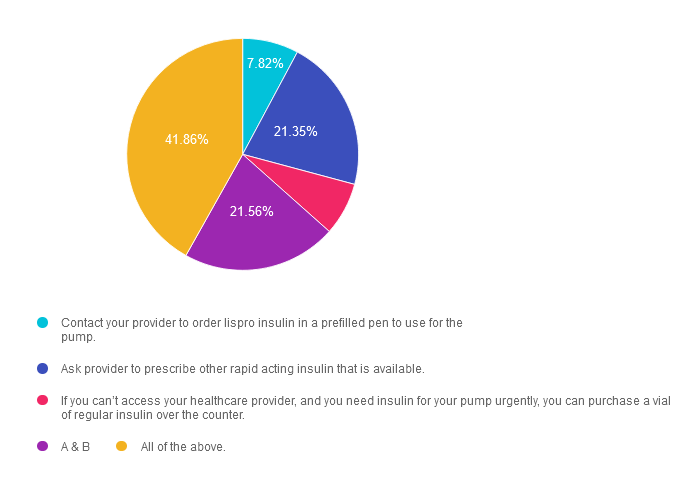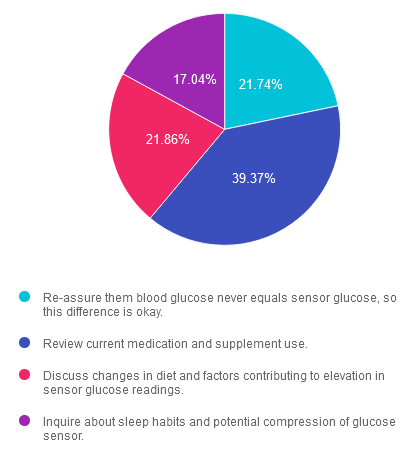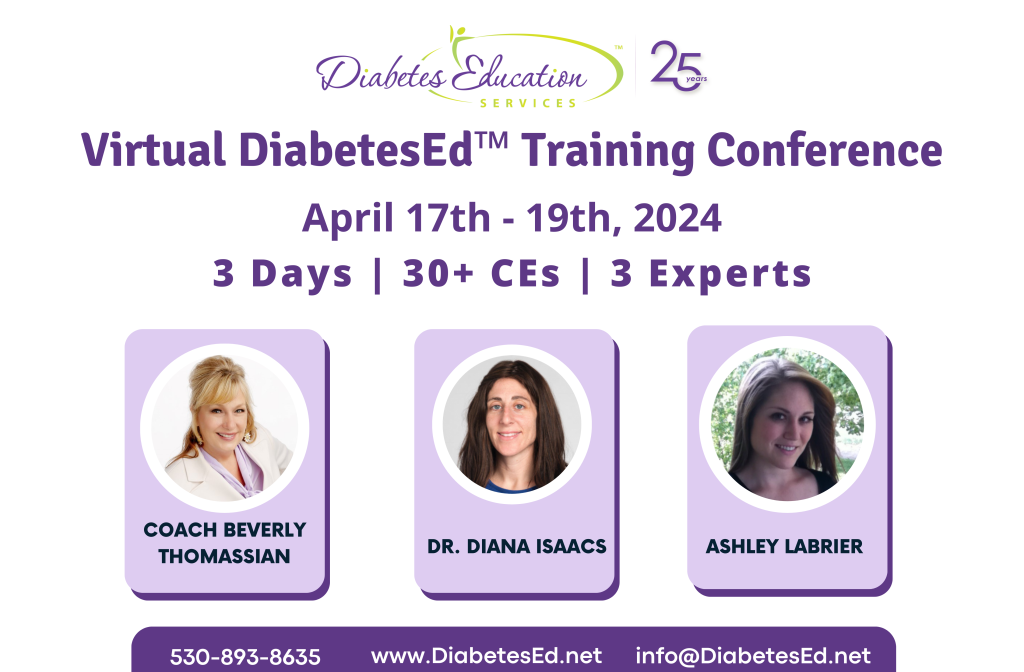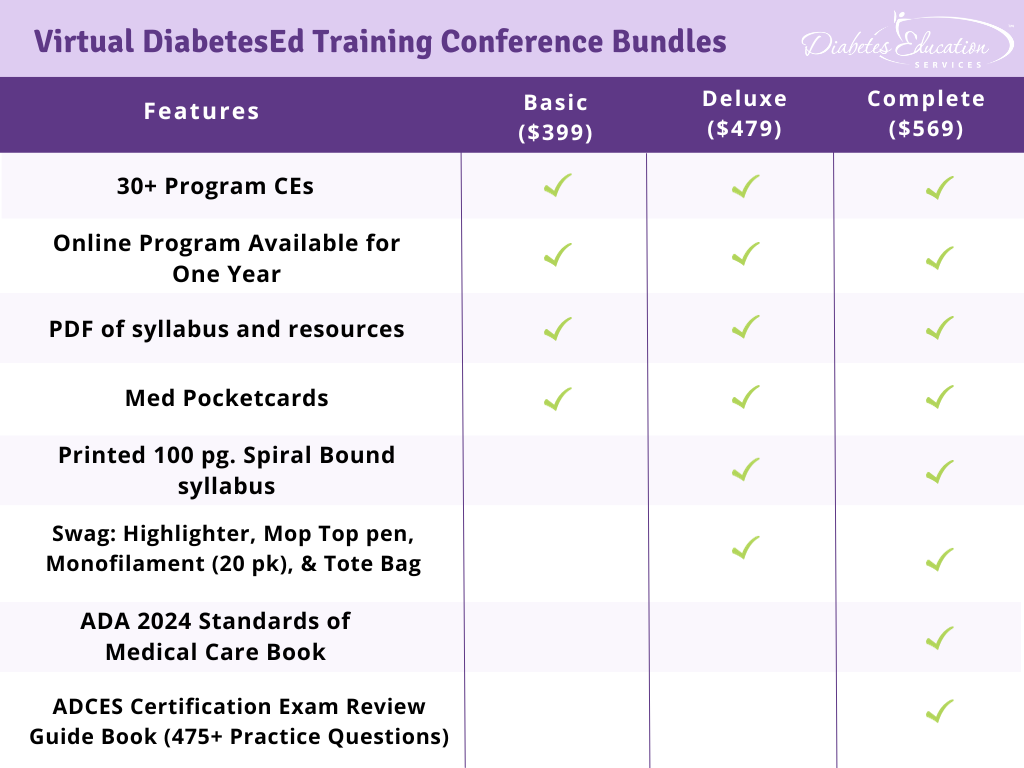
Ready to get certified?
Free CDCES Coach App

Subscribe
eNewsletter
Download
Free Med Pocket Cards
Earth Day Celebration
Happy Earth Day Everyone!
In celebration of Earth Day, we are excited to highlight the role of native plants in supporting wildlife and resilient environments.
By choosing plants that originated from your geographic area, we can help support regional ecosystem and offer pollinators, birds, butterflies and other healthy critters needed food, pollen and building materials for their survival. It’s good for humans too. We thrive in healthy ecosystems and experience improved quality of life.

Common Native Plants in the U.S.
When Coach Beverly first moved to her house 24 years ago, she just planted flowers and grasses that she found visually appealing and could tolerate the heat of our region. Her house and office are situated on an acre of land, so there was lots of space to plant a wide variety of foliage and trees to provide shade and beauty. But, she wasn’t yet tuned-in to the native plant and animal habitats of our new home.
To be honest, 25 years ago, I didn’t give much thought to supporting native plants or animals.
Over time, Coach Beverly started learning about the impact habitat loss for creatures and pollinators. She researched which plants support the local area and found a nearby native nursery. Now, she and husband are working hard to make their land a nourishing and welcoming space for pollinators, birds, amphibians, lizards and more. With the help of a few great websites and a visit to the local native nursery, they incorporate plants that support their community of animals and are drought tolerant.
Water Source
In addition to plants, providing a water source can be a game changer for thirsty pollinators, birds and others animals too. Simply placing a bowl of water, bird bath or even creating a small pond can make a big difference in supporting a variety of wild life. Last year, Coach Beverly dug a frog pond and within a few short weeks, frogs, toads and birds arrived to enjoy a drink, take a swim or a bath. A year later, our pond is teaming with tadpoles, mosquito fish, water beetles, dragonflies and lots of microscopic creatures. This lively pond brings family and visitors an abundance of joy and wonderment. Plus, they notice how connecting with nature improves mental health and helps with stress management and well being.
Nature is Therapeutic
For people with diabetes or other chronic health issues, caring for plants and living beings can be very therapeutic and gratifying, and it doesn’t have to be complicated. Just take one step at a time. Start with potted herbs, plants, vegetables or flowers. Or through some wildflower seeds on a patch of untended earth and see what happens. For the more adventurous, planting a native garden is great excuse to get outside, bend, shovel and keep active. Plus, there is nothing like a fresh tomato warm from the vine that you have nurtured to frutition.
Not Sure What Plants are Native to your Region?
To get started, check out the article, Audubon – 20 Common Types of Native Plants, which includes a helpful list of 20 different native plants that support wildlife in the United States. You can cross-reference plants with your zip code finder above to see if these would be a good addition to your neighborhood. For example, in Chico, California, the California Christmas-Berry is a great food source for local birds and is drought tolerant.
In general, consider adding these native plants to your wish list:
Trees: Oaks, Pines, Dogwoods and Willows.
To bring color to your yard, porch or planters try planting Sunflowers or Coneflowers.
Treats for you and our bird friends include Blueberries, Elderberries, or Service berries.
Websites to Discover Native Flora for Your Region
The National Wildlife Federation (NWF) also provides a wonderful website, Native Plant Finder – NWF, to determine by zip code, native plants for your area. You can create and save your own personalized plant list too.
The Plant Native website, provides a listing of native nurseries throughout the U.S.
I also encourage you to visit www.Earthday.org and Project Regeneration for other great ideas to improve the health of our planet.
Each of us can make a difference
Many of us feel discouraged about what is happening to our planet, but there is a rising awareness of our impact and also a rising belief in our ability to protect this beautiful earth. Each action matters. Your action matters. And you can just start by planting one bush, flower, tree, plant or another acting on another idea that is meaningful to you. Thank you in advance for your action.

For all the earth has given me and I want to give back to this beautiful blue planet. Each intention and action matters.
Each action, no matter how small, matters. We can do this!
With wishes for improved planetary health,
DiabetesEd Services Team
Sign up for Diabetes Blog Bytes – we post weekly Blog Bytes that are informative and FREE! Every week we post one exam practice Question of the Week and Rationale of the Week. Sign up below!
Recent Blog Bytes
- Question of the Week | Which Feature Most Strongly Supports a Diagnosis of HHS Rather Than DKA?
- Rationale of the Week | What Does J.C.’s Family History & Lab Work Reveal?
- Red Flags for Low Digital Literacy in Diabetes Care
- Question of the Week | Best Response for Facilitating Positive Health Behavior Change?
- Rationale of the Week | What to Assess When Looking for PAD?
Accreditation: Diabetes Education Services is an approved provider by the California Board of Registered Nursing, Provider 12640, and our CPEU courses have received Prior Approval* from the Commission of Dietetic Registration (CDR), Provider DI002. Since our CPEU courses received Prior approval* from the CDR, these CPEU courses satisfy the CE requirements for the CDCES /BC-ADM regardless of your profession!
The use of DES products does not guarantee the successful passage of the certification exam. CBDCE and ADCES do not endorse any preparatory or review materials for the CDCES or BC-ADM exams, except for those published by CBDCE & ADCES.
Rationale of the Week | ADA Standards for Gestational Diabetes
For last week’s practice question, we quizzed participants on ADA Standards for gestational diabetes. [%] of respondents chose the best answer. We want to clarify and share this important information, so you can pass it on to people living with diabetes and your colleagues, plus prepare for exam success!
Before we start though, if you don’t want any spoilers and haven’t tried the question yet, you can answer it below: Answer Question

Question: LS has type 1 diabetes and is here for the first visit after confirmation of pregnancy. LS has been using non-adjunctive continuous glucose monitoring (CGM) along with insulin pump therapy to manage diabetes. Previous visits have focused on preconception counseling and last A1c was 6.4%.
According to the 2024 ADA Standards of Care, what do we recommend regarding glucose monitoring during pregnancy?
Answer Choices:
- Recommend continued CGM use with the addition of post-prandial glucose monitoring.
- LS can continue use of non-adjunctive CGM device approved for use during pregnancy.
- Recommend continued CGM with the addition of scheduled blood glucose monitoring.
- Recommend LS move to blood glucose monitoring and check fasting, pre-prandial and post-prandial glucose values.

Getting to the Best Answer
Answer 1 is incorrect. [%] chose this answer. “Recommend continued CGM use with the addition of post-prandial glucose monitoring.” Choice A is not the best answer. The 2024 ADA Standards of Care do recommend CGM use for individuals with type 1 diabetes during pregnancy but simply monitoring post-prandial glucose is insufficient. Keep reading below.
Answer 2 is incorrect. [%] of you chose this answer. “LS can continue use of non-adjunctive CGM device approved for use during pregnancy.” Choice B is not correct. We can continue use of CGM devices during pregnancy, but blood glucose monitoring is recommended in addition to CGM.
Answer 3 is correct. About [%] of respondents chose this. “Recommend continued CGM with the addition of scheduled blood glucose monitoring.” Answer C is correct. The 2024 Standards of Care recommends CGM for individuals with type 1 diabetes during pregnancy but also recommends that it not replace pre-prandial and post-prandial blood glucose monitoring. Fasting, pre-prandial and post-prandial blood glucose monitoring is recommended for individuals with diabetes in pregnancy.
Finally, Answer 4 is incorrect. [%] chose this answer. “Recommend LS move to blood glucose monitoring and check fasting, pre-prandial and post-prandial glucose values.” Response D is not the best answer. We will recommend LS add blood glucose monitoring, but LS does not need to transition off CGM therapy.
We hope you appreciate this week’s rationale! Thank you so much for taking the time to answer our Question of the Week and participate in this fun learning activity!
Want to learn more about this question?
Join us live on June 11th at 11:30 am PST for our
Pregnancy & Diabetes
Level 2 Standards of Care Intensive

Pregnancy with diabetes is confronted with a variety of issues that require special attention, education, & understanding. This course reviews those special needs while focusing on Gestational Diabetes & Pre-Existing Diabetes. Included are the most recent diagnostic criteria, management goals, & prevention of complications during pregnancy. This is a helpful review for Certification Exams & those who want more information on people who are pregnant & live with diabetes.
Objectives:
- List three issues that affect pregnancy with diabetes.
- Describe the unique attributes of pre-existing diabetes in pregnancy & gestational diabetes.
- State the diagnostic criteria & management goals for gestational diabetes.
- Potential short-term & long-term complications of fetal exposure to hypoglycemia.
- Prevention measures to keep mother & baby healthy.
Learning Outcome:
Participants will gain knowledge of special considerations, individualized goals, and standards for people experiencing diabetes during pregnancy to improve outcomes.
Target Audience:
This course is a knowledge-based activity designed for individuals or groups of diabetes professionals, including RNs, RDs/RDNs, Pharmacists, Nurse Practitioners, Clinical Nurse Specialists, Physician Assistants, and other healthcare providers interested in staying up to date on current practices of care for people with prediabetes, diabetes, and other related conditions. The practice areas for RDs/RDNs for CDR reporting are healthcare, preventative care, wellness, and, lifestyle along with, education and research.
CDR Performance Indicators:
- 9.6.7
- 9.6.8
- 10.3.1
Instructor: Beverly Thomassian RN, MPH, CDCES, BC-ADM is a working diabetes specialist and a nationally recognized diabetes expert.
Sign up for Diabetes Blog Bytes – we post weekly Blog Bytes that are informative and FREE! Every week we post one exam practice Question of the Week and Rationale of the Week. Sign up below!
Recent Blog Bytes
- Question of the Week | Which Feature Most Strongly Supports a Diagnosis of HHS Rather Than DKA?
- Rationale of the Week | What Does J.C.’s Family History & Lab Work Reveal?
- Red Flags for Low Digital Literacy in Diabetes Care
- Question of the Week | Best Response for Facilitating Positive Health Behavior Change?
- Rationale of the Week | What to Assess When Looking for PAD?
Accreditation: Diabetes Education Services is an approved provider by the California Board of Registered Nursing, Provider 12640, and our CPEU courses have received Prior Approval* from the Commission of Dietetic Registration (CDR), Provider DI002. Since our CPEU courses received Prior approval* from the CDR, these CPEU courses satisfy the CE requirements for the CDCES /BC-ADM regardless of your profession!
The use of DES products does not guarantee the successful passage of the certification exam. CBDCE and ADCES do not endorse any preparatory or review materials for the CDCES or BC-ADM exams, except for those published by CBDCE & ADCES.
Upcoming webinars | Cardiovascular Disease & Risk Management, Lower Extremity Assessment

Be a part of our diabetes community while learning about the latest in diabetes care.
Plus, Coach Beverly provides an interactive question and answer session at the end of each live webinar.
Level 2 | Cardiovascular Disease & Risk Management
Airs live on April 25, 2024, at 11:30 am PT

We discuss insulin resistance and the impact of hyperglycemia of vessel disease from the heart to the toes. Included is a discussion of identifying & preventing cardiovascular disease & a comprehensive review of the latest American Diabetes Association’s (ADA) Standards of Medical Care in Diabetes for heart disease.
Topics:
- The impact of insulin resistance & hyperglycemia on vessel disease.
- State the complications & factors associated with vascular disease.
- List management goals to reduce the risk of vascular disease.
- Discuss strategies to promote health.
Intended Audience: Designed for healthcare professionals seeking to delve into evidence-based cardiovascular prevention and treatment strategies for those living with prediabetes and diabetes. This content is also helpful in preparation for diabetes certification exams.
Can’t make it live? No worries. We will send post the recorded version to the Online University within 24 hours of the broadcast
Instructor: Beverly Thomassian RN, MPH, CDCES, BC-ADM is a working diabetes specialist and a nationally recognized diabetes expert.
Airs live on April 30, 2024, at 11:30 am PT

People with diabetes are at increased risk of Lower Extremity Complications. This course reviews the steps involved in performing a detailed assessment of the lower extremities, including how to use a monofilament and tuning fork to detect neuropathy. We also discuss the significance of Ankle Brachial Index and strategies to prevent lower extremity complications.
Topics:
- Describe the risk factors for lower extremity complications.
- Discuss prevention strategies.
- Demonstrate steps involved in a lower extremity assessment.
Intended Audience: A detailed course for healthcare professionals who want to learn the steps involved in providing a thorough lower extremity assessment and prepare for certification exams.
Can’t make it live? No worries. We will send post the recorded version to the Online University within 24 hours of the broadcast
Instructor: Beverly Thomassian RN, MPH, CDCES, BC-ADM is a working diabetes specialist and a nationally recognized diabetes expert.
Earn 1.5 CEs
Sign up for Diabetes Blog Bytes – we post one daily Blog Byte from Monday to Friday. And of course, Tuesday is our Question of the Week. It’s Informative and FREE! Sign up below!
Accreditation: Diabetes Education Services is an approved provider by the California Board of Registered Nursing, Provider 12640, and our CPEU courses have received Prior Approval* from the Commission of Dietetic Registration (CDR), Provider DI002. Since our CPEU courses received Prior approval* from the CDR, these CPEU courses satisfy the CE requirements for the CDCES /BC-ADM regardless of your profession!
The use of DES products does not guarantee the successful passage of the certification exam. CBDCE and ADCES do not endorse any preparatory or review materials for the CDCES or BC-ADM exams, except for those published by CBDCE & ADCES.
Rationale of the Week | JR is out of lispro (Humalog) insulin and is panicking.
For last week’s practice question, we quizzed participants on JR is out of lispro (Humalog) insulin and is panicking. 42% of respondents chose the best answer. We want to clarify and share this important information, so you can pass it on to people living with diabetes and your colleagues, plus prepare for exam success!
Before we start though, if you don’t want any spoilers and haven’t tried the question yet, you can answer it below: Answer Question.

Question: JR is a 19-year-old, living with type 1 diabetes. They use lispro (Humalog) insulin in their insulin pump. They just heard from their pharmacy that lispro is in short supply and they don’t know when they will be getting in the next shipment. JR tells you they are almost done with their current lispro vial and is panicking, asking what they should do.
Answer Choices:
- Contact your provider to order lispro insulin in a prefilled pen to use for the pump.
- Ask provider to prescribe other rapid acting insulin that is available.
- If you can’t access your healthcare provider, and you need insulin for your pump urgently, you can purchase a vial of regular insulin over the counter.
- A & B
- All of the above.

Getting to the Best Answer
Answer 1 is incorrect. 7.8% chose this answer. “Contact your provider to order lispro insulin in a prefilled pen to use for the pump.” This answer is correct, but it is not the BEST answer. Since insulin pens are more readily available and it is the same insulin formulation and concentration, JR can use the insulin from a lispro insulin pen in their pump. However, there is a better answer, so, keep reading.
Answer 2 is incorrect. 21.35% of you chose this answer. “Ask provider to prescribe other rapid acting insulin that is available.” This answer is correct, but it is not the BEST answer. There are other rapid acting insulins such as NovoLog (insulin aspart) or the biosimilar insulin Admelog (insulin lispro injection) made by other manufacturers that are more readily available with the same insulin concentration. However, there is a better answer, so, keep reading.
Answer 3 is incorrect. About 7.4% of respondents chose this. “If you can’t access your healthcare provider, and you need insulin for your pump urgently, you can purchase a vial of regular insulin over the counter.” This answer is correct, but it is not the BEST answer. Regular insulin is available for purchase over-the-counter without the need for a prescription and is FDA approved for used in an insulin pump. However, there is a better answer, so, keep reading.
Answer 4 is incorrect. 21.6% chose this answer. “A & B”
Finally, Answer 5 is correct. 41.9% chose this answer. “All of the above.” YES, this is the best answer, all 3 options are correct. Of course, we encourage individuals to consult with their healthcare provider, since everyone responds differently to switching insulins. We wanted to raise awareness with this question, since many individuals with diabetes who use insulin lispro and Humalog vials for their insulin pumps have encountered shortages. We can reassure them that there are several options to get them by until lispro and Humalog insulin are back on the shelf. For more info, you can download our Insulin PocketCards.
We hope you appreciate this week’s rationale! Thank you so much for taking the time to answer our Question of the Week and participate in this important learning activity!
Want to Learn more about recognizing and addressing Diabetes Distress?
Join us live on May 22nd & May 29th, 2024 for our
ReViVE 5 Diabetes Training Program:
Unlocking Hidden Barriers to Diabetes Management
“ReVive 5” breathes new life into our relationship with diabetes, bringing a fresh perspective to both the person with diabetes and the provider.
The ReVive 5 program is built on sound research from the Embark Trial and will revolutionize your approach to diabetes self-management education.
We have reassembled the Embark training team and created a resource binder of fantastic tools that we are excited to share with you in our ReVive 5 Diabetes Training Program. You are invited to join us to learn a step-wise, proven approach to addressing hidden barriers to diabetes self-management and glucose management.
You don’t need to be mental health expert or diabetes technology wiz to join this training or to integrate these new strategies into your daily practice.
ReVive 5 uses an integrated, evidence-based approach that provides health care professionals with a realistic 5-step approach to addressing the whole person, starting with emotional distress and incorporating a unique, but integrated approach to problem-solving glucose management difficulties.
Intended Audience: This library of critical information is designed for individuals or groups of diabetes specialists, including RNs, RDs, Pharmacists, Nurse Practitioners, Clinical Nurse Specialists, Physician Assistants, and other health care providers interested in staying up to date on current practices of care for people with diabetes and preparing for the CDCES or BC-ADM Certification Exams.
Can’t join live? That’s okay. Your registration guarantees you access to the recorded version of the series, along with podcasts and resources for one full year.
Accredited Training Program:
- 15+ CEs – Includes the 7-hour ReVive 5 Training Program, Certificate, and 5 FREE bonus courses to supplement content.
- A comprehensive set of assessment tools, educational materials, log sheets, and resources.
Join us to gain the confidence and learn the skills needed to support people with diabetes to move forward in their self-management and discover the expert within.
Team of Experts:
ReVive 5 is taught by a team of 3 Interdisciplinary Experts:
- Lawrence Fisher, Ph.D., ABPP, Professor Emeritus, UCSF
- Susan Guzman, PhD
- Beverly Thomassian, RN, MPH, CDCES, BC-ADM
Speakers Interviews – Learn more about the ReVive 5 Team
Sign up for Diabetes Blog Bytes – we post weekly Blog Bytes that are informative and FREE! Every week we post one exam practice Question of the Week and Rationale of the Week. Sign up below!
Recent Blog Bytes
- Question of the Week | Which Feature Most Strongly Supports a Diagnosis of HHS Rather Than DKA?
- Rationale of the Week | What Does J.C.’s Family History & Lab Work Reveal?
- Red Flags for Low Digital Literacy in Diabetes Care
- Question of the Week | Best Response for Facilitating Positive Health Behavior Change?
- Rationale of the Week | What to Assess When Looking for PAD?
Accreditation: Diabetes Education Services is an approved provider by the California Board of Registered Nursing, Provider 12640, and our CPEU courses have received Prior Approval* from the Commission of Dietetic Registration (CDR), Provider DI002. Since our CPEU courses received Prior approval* from the CDR, these CPEU courses satisfy the CE requirements for the CDCES /BC-ADM regardless of your profession!
The use of DES products does not guarantee the successful passage of the certification exam. CBDCE and ADCES do not endorse any preparatory or review materials for the CDCES or BC-ADM exams, except for those published by CBDCE & ADCES.
Question of the Week | Euglycemic DKA – What is Best Intervention?

KT is a 54-year-old, who presents to the emergency room with nausea and vomiting. KT weighs 58kg, has been feeling very tired and has diabetes and hypertension.
Meds include: losartan, metformin, and empagliflozin.
Labs: Na 140, K 4.0, Chloride 99, Bicarb 15, Glucose 189, Anion Gap 26, pH 7.1 and positive urine ketones.
After infusing 2 liters of normal saline, what would be the best intervention for KT?
- Give another 2 liters of NS with 20 meq/L of KCL
- Continue current therapy.
- Start insulin infusion with a dextrose-based solution.
- Give an amp of sodium bicarbonate.
Want to learn more about this question?
Keynote Presentation on DKA & Euglycemic DKA at
16th Annual Conference
Expanding the Universe of Diabetes Care hosted by CA ADCES
May 3-4th at Universal City, CA

Beverly will be speaking on DKA and EDKA on Saturday – May 4, 2024 at 11:30 am
Below is Saturday’s schedule of topics and flyer for more information. We hope to see you there!
>>Register for the Conference
>>Flyer for Event
- Discover the secrets to a successful and sustainable Diabetes Education Program – Tony Song, MBA
- Exercise Success Part 3 & 4 – Jacqueline Thompson, MS, RD, CDCES, MES
- Dynamic Duo: Registered Dietitian & Pharmacist Co-Appointments in Diabetes Care – Christal Pham, PharmD, APh, CDCES, Melanie Barbee, MS, RDN, CDCES, DipACLM
- Advocacy Update: Breakdown the Barriers to Evidence-Based Diabetes Care – Teresa Martin MS RDN CDCES LD
- New criteria and treatment guidelines for DKA, Euglycemic DKA, and HHS – Beverly Thomassian, RN, MPH, CDCES, BC-ADM
- Exercise Success Part 4 – Jacqueline Thompson, MS, RD, CDCES, MES
- Diabetes Technology: Understanding the Differences in the Latest CGMs and Pumps – David Ahn, MD
Sign up for Diabetes Blog Bytes – we post weekly Blog Bytes that are informative and FREE! Every week we post one exam practice Question of the Week and Rationale of the Week. Sign up below!
Recent Blog Bytes
- Question of the Week | Which Feature Most Strongly Supports a Diagnosis of HHS Rather Than DKA?
- Rationale of the Week | What Does J.C.’s Family History & Lab Work Reveal?
- Red Flags for Low Digital Literacy in Diabetes Care
- Question of the Week | Best Response for Facilitating Positive Health Behavior Change?
- Rationale of the Week | What to Assess When Looking for PAD?
Accreditation: Diabetes Education Services is an approved provider by the California Board of Registered Nursing, Provider 12640, and our CPEU courses have received Prior Approval* from the Commission of Dietetic Registration (CDR), Provider DI002. Since our CPEU courses received Prior approval* from the CDR, these CPEU courses satisfy the CE requirements for the CDCES /BC-ADM regardless of your profession!
The use of DES products does not guarantee the successful passage of the certification exam. CBDCE and ADCES do not endorse any preparatory or review materials for the CDCES or BC-ADM exams, except for those published by CBDCE & ADCES.
Rationale of the Week | Why are CGM readings higher than BG readings?
For last week’s practice question, we quizzed participants on why CGM readings are higher than BG readings. 39% of respondents chose the best answer. We want to clarify and share this important information, so you can pass it on to people living with diabetes and your colleagues, plus prepare for exam success!
Before we start though, if you don’t want any spoilers and haven’t tried the question yet, you can answer it below: Answer Question

Question: KS has type 1 diabetes, takes degludec and lispro for their diabetes medications and was recently prescribed CGM therapy to support glucose monitoring. At their visit they report sensor readings have been consistently higher than blood glucose readings.
What would be an important follow-up question to evaluate the potential cause of this difference?
Answer Choices:
- Re-assure them blood glucose never equals sensor glucose, so this difference is okay.
- Review current medication and supplement use.
- Discuss changes in diet and factors contributing to elevation in sensor glucose readings.
- Inquire about sleep habits and potential compression of glucose sensor

Getting to the Best Answer
Answer 1 is incorrect. 21.74% chose this answer. “Re-assure them blood glucose never equals sensor glucose, so this difference is okay.” This answer is incorrect. Although it is true that sensor glucose does not equal blood glucose, there may be other factors contributing to consistent elevation in glucose trends. We would want to probe into other potential considerations before jumping to the conclusion that it is only the difference in measurement.
Answer 2 is correct. 39.37% of you chose this answer. “Review current medication and supplement use.” This answer is correct. Interfering substances such as acetaminophen and ascorbic acid (vitamin C) can contribute to higher glucose readings than actual glucose. The interfering substance depends upon the CGM manufacturer. The 2024 ADA Standards of Care reports the importance of reviewing medications and supplements used by persons with diabetes to identify possible interfering substances. They also recommend blood glucose monitoring if there is a concern of inaccurate data. Visit Section 7 of the 2024 Standards of Care to review the table of CGM manufacturers and potential interring substances.
Answer 3 is incorrect. About 21.86% of respondents chose this. “Discuss changes in diet and factors contributing to elevation in sensor glucose readings.” This answer is incorrect. Although sensor glucose and blood glucose values are more likely to significantly differ after a meal, KS reports consistent elevation in sensor glucose values. Diet factors contributing to elevated sensor glucose readings would likely contribute to elevated blood glucose readings too; we may just see a delay. Diet factors alone would not explain the consistent difference in elevation.
Finally, Answer 4 is incorrect. 17.04% chose this answer. “Inquire about sleep habits and potential compression of glucose sensor.” This answer is incorrect. Compression of the sensor during sleep can contribute to false sensor glucose readings, but we most often see sudden decreases (low) in glucose values. This is suspected to be due to local changes in blood flow/concentration of the interstitial glucose caused by direct pressure on the sensor. Screening for compression lows is important when reviewing CGM data but does not provide the best answer for consistently elevated glucose trends.
We hope you appreciate this week’s rationale! Thank you so much for taking the time to answer our Question of the Week and participate in this fun learning activity!
Want to learn more about this question?
Virtual DiabetesEd Training Conference – Join us Live on April 17th – 19th 2024 at 11:30 AM PST

Join Coach Beverly and Team for two and a half days of knowledge-sharing, fun, and “aha” moments for our Virtual DiabetesEd Training Conference April 17th – 19th, 2024.
Attendees will leave this conference with new tools and a refreshed understanding of the latest advances in person-centered diabetes care. Our team highlights the ADA Standards of Care, medications, behavior change, technology, medical nutrition therapy, and more!
Our instructors co-teach the content to keep things fresh and lively.
Friend Discount: 3 or more only $449 per person. Email us at [email protected] with the name and email of each registrant to get the discount!
Program Details
- Dates: April 17-19th, 2024
- Registration Fee: $399-$569 (see more about reg. options below)
- Friend Discount: For 3 or more people, each person saves $50 off their registration. Email us at [email protected] with the name and email of each registrant to get the discount!
- CEs: 30+ CEs | 18 units for Virtual Conference plus 10+ Bonus CEs. CEs can be applied toward CDCES’s initial application or renewal.
- Speakers: View Conference Faculty
Registration Options

Sign up for Diabetes Blog Bytes – we post weekly Blog Bytes that are informative and FREE! Every week we post one exam practice Question of the Week and Rationale of the Week. Sign up below!
Recent Blog Bytes
- Question of the Week | Which Feature Most Strongly Supports a Diagnosis of HHS Rather Than DKA?
- Rationale of the Week | What Does J.C.’s Family History & Lab Work Reveal?
- Red Flags for Low Digital Literacy in Diabetes Care
- Question of the Week | Best Response for Facilitating Positive Health Behavior Change?
- Rationale of the Week | What to Assess When Looking for PAD?
Accreditation: Diabetes Education Services is an approved provider by the California Board of Registered Nursing, Provider 12640, and our CPEU courses have received Prior Approval* from the Commission of Dietetic Registration (CDR), Provider DI002. Since our CPEU courses received Prior approval* from the CDR, these CPEU courses satisfy the CE requirements for the CDCES /BC-ADM regardless of your profession!
The use of DES products does not guarantee the successful passage of the certification exam. CBDCE and ADCES do not endorse any preparatory or review materials for the CDCES or BC-ADM exams, except for those published by CBDCE & ADCES.
Question of the Week | JR is out of lispro (Humalog) insulin and is panicking.

JR is a 19-year-old, living with type 1 diabetes. They use lispro (Humalog) insulin in their insulin pump. They just heard from their pharmacy that lispro is in short supply and they don’t know when they will be getting in the next shipment. JR tells you they are almost done with their current lispro vial and is panicking, asking what they should do.
What is the best response?
- Contact your provider to order lispro insulin in a prefilled pen to use for the pump.
- Ask provider to prescribe other rapid acting insulin that is available.
- If you can’t access your healthcare provider, and you need insulin for your pump urgently, you can purchase a vial of regular insulin over the counter.
- A & B
- All of the above.
Want to learn more about this question?
Join us live on May 22nd & May 29th, 2024 for our
ReViVE 5 Diabetes Training Program:
Unlocking Hidden Barriers to Diabetes Management
“ReVive 5” breathes new life into our relationship with diabetes, bringing a fresh perspective to both the person with diabetes and the provider.
The ReVive 5 program is built on sound research from the Embark Trial and will revolutionize your approach to diabetes self-management education.
We have reassembled the Embark training team and created a resource binder of fantastic tools that we are excited to share with you in our ReVive 5 Diabetes Training Program. You are invited to join us to learn a step-wise, proven approach to addressing hidden barriers to diabetes self-management and glucose management.
You don’t need to be mental health expert or diabetes technology wiz to join this training or to integrate these new strategies into your daily practice.
ReVive 5 uses an integrated, evidence-based approach that provides health care professionals with a realistic 5-step approach to addressing the whole person, starting with emotional distress and incorporating a unique, but integrated approach to problem-solving glucose management difficulties.
Intended Audience: This library of critical information is designed for individuals or groups of diabetes specialists, including RNs, RDs, Pharmacists, Nurse Practitioners, Clinical Nurse Specialists, Physician Assistants, and other health care providers interested in staying up to date on current practices of care for people with diabetes and preparing for the CDCES or BC-ADM Certification Exams.
Can’t join live? That’s okay. Your registration guarantees you access to the recorded version of the series, along with podcasts and resources for one full year.
Accredited Training Program:
- 15+ CEs – Includes the 7-hour ReVive 5 Training Program, Certificate, and 5 FREE bonus courses to supplement content.
- A comprehensive set of assessment tools, educational materials, log sheets, and resources.
Join us to gain the confidence and learn the skills needed to support people with diabetes to move forward in their self-management and discover the expert within.
Team of Experts:
ReVive 5 is taught by a team of 3 Interdisciplinary Experts:
- Lawrence Fisher, Ph.D., ABPP, Professor Emeritus, UCSF
- Susan Guzman, PhD
- Beverly Thomassian, RN, MPH, CDCES, BC-ADM
Speakers Interviews – Learn more about the ReVive 5 Team
Sign up for Diabetes Blog Bytes – we post weekly Blog Bytes that are informative and FREE! Every week we post one exam practice Question of the Week and Rationale of the Week. Sign up below!
Recent Blog Bytes
- Question of the Week | Which Feature Most Strongly Supports a Diagnosis of HHS Rather Than DKA?
- Rationale of the Week | What Does J.C.’s Family History & Lab Work Reveal?
- Red Flags for Low Digital Literacy in Diabetes Care
- Question of the Week | Best Response for Facilitating Positive Health Behavior Change?
- Rationale of the Week | What to Assess When Looking for PAD?
Accreditation: Diabetes Education Services is an approved provider by the California Board of Registered Nursing, Provider 12640, and our CPEU courses have received Prior Approval* from the Commission of Dietetic Registration (CDR), Provider DI002. Since our CPEU courses received Prior approval* from the CDR, these CPEU courses satisfy the CE requirements for the CDCES /BC-ADM regardless of your profession!
The use of DES products does not guarantee the successful passage of the certification exam. CBDCE and ADCES do not endorse any preparatory or review materials for the CDCES or BC-ADM exams, except for those published by CBDCE & ADCES.
April 2024 eNews | Does Yogurt Reduce Risk of Type 2 Diabetes? Liver Disease & Diabetes: A Call to Action, First Over-the-Counter CGM!
Happy April

With the emerging sunshine and nature in bloom, it feels like a personal invitation to awaken from the winter slumber and take an outdoor stroll or enjoy the simple pleasure of planting. To celebrate Earth Day on April 22nd, we highlight how to incorporate native plants into daily life and support healthy ecosystems. Our nutrition expert explores how yogurt decreases the risk of type 2 diabetes and dives into the science of this century’s old favorite food. We discuss the importance of screening for undetected liver disease to provide early and focused treatment to prevent progression to liver failure. In addition, we feature a new FDA approved medication that treats liver disease and fibrosis with a list of diabetes medications that also offer effective treatment. The new over-the-counter sensor, Stelo, is FDA-approved and should be available for purchase in late summer. We examine its features and limitations. Our first “Connect with Coach Beverly” was a big hit, so we are offering it again in April. You are invited to submit your questions and join our lively discussion. For our Question of Week Section, we ask, “Why don’t the CGM and meter reading match? And “What is the best treatment for steatosis?” Test your knowledge and prepare for exam success. We are thrilled to offer our Free Webinars on CDCES and BC-ADM Prep, plus a bunch of other great programs. Hope to see you there. |
Sending notes of joy and health, Coach Beverly and Bryanna |
Featured Articles
- Does Yogurt Reduce Type 2 Risk?
- Liver Disease & Diabetes: A Call to Action:
- First OTC Sensor FDA Approved
- Earth Day Celebration
- Coach Beverly Connects – Airs April 23rd
- Question of the Week #1
- Question of the Week #2
Upcoming Webinars
- Microvascular Disease – Reducing Risk on April 11th
- Cardiovascular Disease & Diabetes – April 13
- Virtual DiabetesEd Training Conference – April 17-19
- ReVive 5 – May 22nd & 29th
Upcoming Events – See the complete calendar listing
Virtual DiabetesEd Training Conference – Join us Live on April 17th – 19th 2024 at 11:30 AM PST

Join Coach Beverly and Team for two and a half days of knowledge-sharing, fun, and “aha” moments for our Virtual DiabetesEd Training Conference April 17th – 19th, 2024.
Attendees will leave this conference with new tools and a refreshed understanding of the latest advances in person-centered diabetes care. Our team highlights the ADA Standards of Care, medications, behavior change, technology, medical nutrition therapy, and more!
Our instructors co-teach the content to keep things fresh and lively.
Friend Discount: 3 or more only $449 per person. Email us at [email protected] with the name and email of each registrant to get the discount!
Program Details
- Dates: April 17-19th, 2024
- Registration Fee: $399-$569 (see more about reg. options below)
- Friend Discount: For 3 or more people, each person saves $50 off their registration. Email us at [email protected] with the name and email of each registrant to get the discount!
- CEs: 30+ CEs | 18 units for Virtual Conference plus 10+ Bonus CEs. CEs can be applied toward CDCES’s initial application or renewal.
- Speakers: View Conference Faculty
- Conference Schedule >
- Conference Flyer >
Click Here for Registration Options

Accreditation: Diabetes Education Services is an approved provider by the California Board of Registered Nursing, Provider 12640, and our CPEU courses have received Prior Approval* from the Commission of Dietetic Registration (CDR), Provider DI002. Since our CPEU courses received Prior approval* from the CDR, these CPEU courses satisfy the CE requirements for the CDCES /BC-ADM regardless of your profession!
The use of DES products does not guarantee the successful passage of the certification exam. CBDCE and ADCES do not endorse any preparatory or review materials for the CDCES or BC-ADM exams, except for those published by CBDCE & ADCES.
Footer Left Description
Diabetes Education Services offers education and training to diabetes educators in the areas of both Type 1 and Type 2 Diabetes for the novice to the established professional. Whether you are training to be a Certified Diabetes Care and Education Specialist (CDCES), practicing at an advanced level and interested in board certification, or a health care professional and/or Certified Diabetes Care and Education Specialist (CDCES) who needs continuing education hours to renew your license or CDCES, we have diabetes education information, resources and training; learning and teaching tools; and diabetes online courses available for continuing education (CE). Read our disclaimer for full disclosure.
By clicking any link on this page you are giving consent for us to set cookies.







